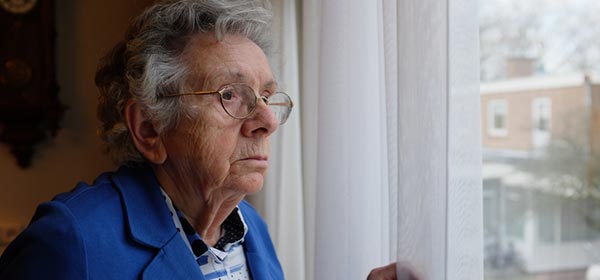Loneliness can be a crushing experience. As humans, we crave connection and social interaction with others, so periods of isolation can cause significant distress. But you don’t have to be physically isolated in order to be lonely – it’s possible to feel disconnected even when surrounded by people. If feelings of loneliness last for an extended period, they can be detrimental to not just your mental wellbeing but can also pose a risk to your physical health.
According to University of Chicago social neurologist John Cacioppo, co-author of Loneliness: Human Nature and the Need for Social Connection, the effects of isolation or rejection on the body are as legitimate as hunger, thirst or pain.
“For a social species, to be on the edge of social perimeter is to be in a dangerous position,” Dr Cacioppo says.
“The brain goes into a self-preservation state that brings with it a lot of unwanted effects.”
Distress can manifest itself in many ways, with physicals symptoms including:
- aches and pains
- susceptibility to illness and infection
- lethargy
- sleep problems
- decreased appetite
- high blood pressure
- increased pressure on the heart.
There are many reasons why a person may feel lonely or isolated. According to Lifeline, these include:
- losing a loved one or friend through death or relocation
- lack of close family ties
- living alone
- difficulties in meeting new people due to access issues or introverted personalities
- feelings of loss or grief
- a mental health condition such as depression or anxiety
- fear of rejection from others or feelings of being ‘different’ or stigmatised by society
- inability to participate in activities due to access issues, mobility, illness, lack of transport
- retirement from work, home relocation, starting out in a new role or community
- lack of purpose or meaning in life
- language or cultural barriers, or reduced connection with your culture of origin
- geographic isolation
- feeling lost in the crowd.
So, what can you do for yourself or a loved one experiencing loneliness?
Connecting or reconnecting with family or friends is a good place to start. If you’re not located close enough to see them in person, phone calls, email or social media can help. However, avoid completely substituting technology for the real thing.
Getting involved in local activities can be a great way of making new friends and creating a sense of community and achievement. This could include volunteering, taking a class or joining a club or team. Even just spending time in a public space, such as a park, library or café, can foster a feeling of interaction and create opportunities for conversation.
If you’re lonely at home, consider adopting a pet. They make loyal, uplifting companions.
If loneliness is seriously affecting your health and you need support, talk to your GP or contact Lifeline on 13 11 14.
Has loneliness become a problem in your life? Have you found ways to reconnect that you would like to share with our members?
Related articles:
Lonely but not alone
No need to be lonely
How to recognise depression

